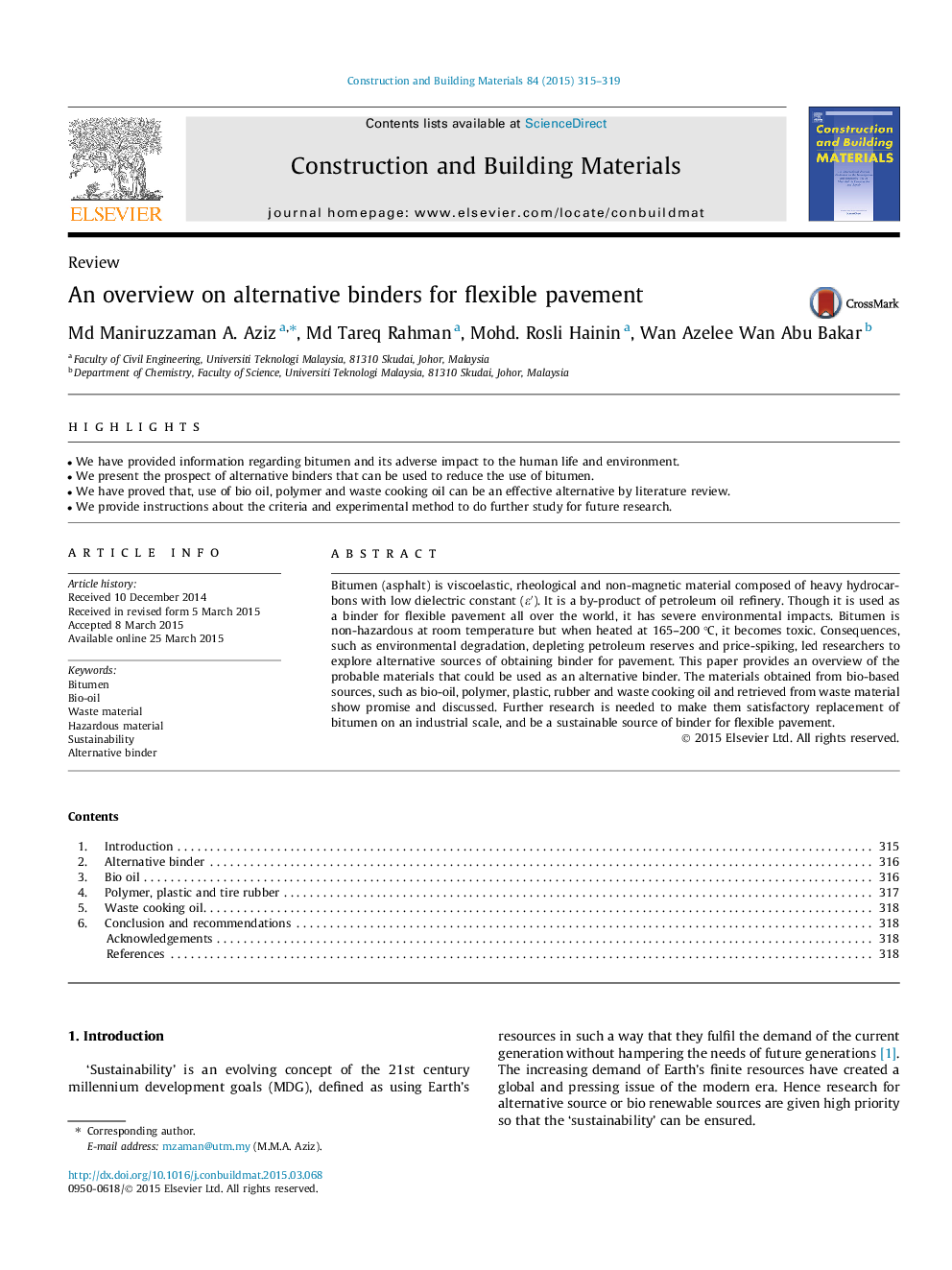| Article ID | Journal | Published Year | Pages | File Type |
|---|---|---|---|---|
| 257032 | Construction and Building Materials | 2015 | 5 Pages |
•We have provided information regarding bitumen and its adverse impact to the human life and environment.•We present the prospect of alternative binders that can be used to reduce the use of bitumen.•We have proved that, use of bio oil, polymer and waste cooking oil can be an effective alternative by literature review.•We provide instructions about the criteria and experimental method to do further study for future research.
Bitumen (asphalt) is viscoelastic, rheological and non-magnetic material composed of heavy hydrocarbons with low dielectric constant (ε′). It is a by-product of petroleum oil refinery. Though it is used as a binder for flexible pavement all over the world, it has severe environmental impacts. Bitumen is non-hazardous at room temperature but when heated at 165–200 °C, it becomes toxic. Consequences, such as environmental degradation, depleting petroleum reserves and price-spiking, led researchers to explore alternative sources of obtaining binder for pavement. This paper provides an overview of the probable materials that could be used as an alternative binder. The materials obtained from bio-based sources, such as bio-oil, polymer, plastic, rubber and waste cooking oil and retrieved from waste material show promise and discussed. Further research is needed to make them satisfactory replacement of bitumen on an industrial scale, and be a sustainable source of binder for flexible pavement.
